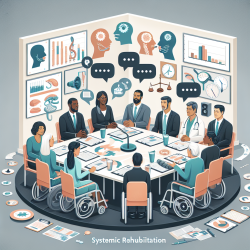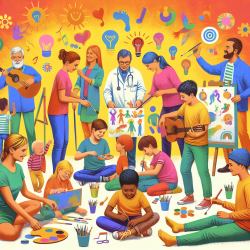Introduction
As practitioners dedicated to improving children's outcomes, it is crucial to stay informed about the latest research and how it can be applied to our practices. A recent study titled Self-Reported Health and Patterns of Romantic Love in Adolescents from Eight European Countries and Regions provides valuable insights into the health disparities faced by adolescents, particularly those identifying as sexual minorities. By understanding these findings, we can better support our young clients in achieving optimal health and well-being.
Understanding the Research
The study analyzed data from 13,674 adolescents across eight European countries, focusing on the relationship between romantic love patterns and self-reported health outcomes. Adolescents who reported same-gender or both-gender love were found to have significantly higher odds of experiencing multiple psychosomatic symptoms and poor self-rated health compared to those who reported opposite-gender love or never having been in love.
The findings suggest that sexual minority youth (SMY) face health inequalities that are consistent across various European regions. This highlights the importance of addressing minority stress and its impact on adolescent health.
Implications for Practitioners
As practitioners, understanding the impact of minority stress on adolescent health can guide us in creating supportive environments for SMY. Here are some strategies to consider:
- Promote Inclusivity: Ensure that your practice environment is welcoming and inclusive for all sexual orientations and gender identities.
- Educate and Advocate: Educate yourself and others about the unique challenges faced by SMY and advocate for policies that support their well-being.
- Foster Supportive Networks: Encourage the formation of supportive peer networks, such as Gay-Straight Alliances, to reduce feelings of isolation and improve mental health outcomes.
- Provide Affirmative Care: Offer affirmative care that acknowledges and respects the identities and experiences of SMY, addressing their specific health needs.
Encouraging Further Research
While this study provides valuable insights, there is still much to learn about the health disparities faced by SMY. Further research is needed to explore the long-term health outcomes of these adolescents and the role of social support in mitigating negative health effects. Practitioners are encouraged to contribute to this growing body of research by conducting studies within their own communities and sharing their findings with the broader scientific community.
Conclusion
By understanding the health disparities faced by SMY and implementing supportive strategies in our practices, we can help reduce health inequalities and improve outcomes for all adolescents. For practitioners interested in delving deeper into this topic, I highly recommend reading the original research paper, Self-Reported Health and Patterns of Romantic Love in Adolescents from Eight European Countries and Regions.










